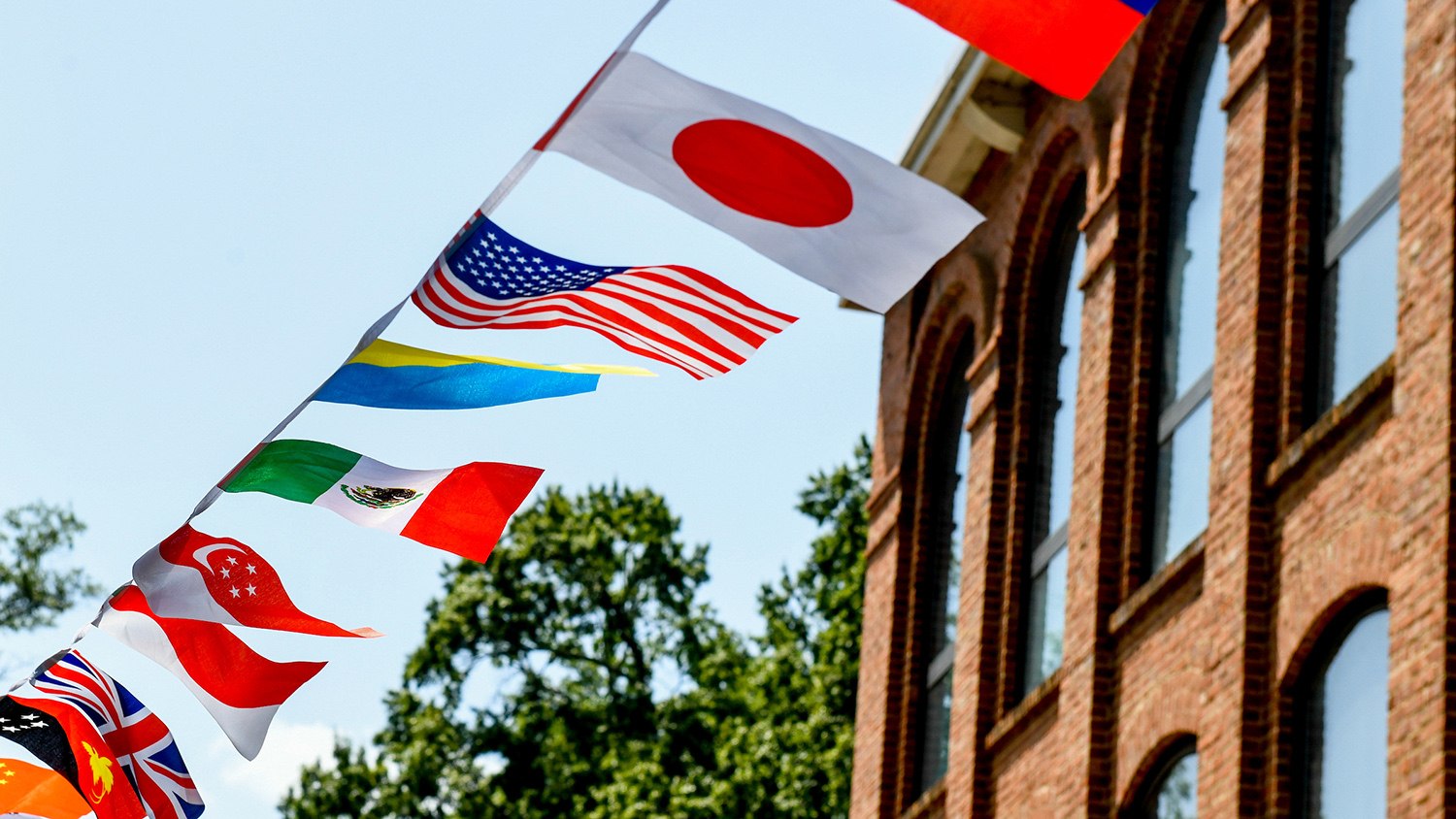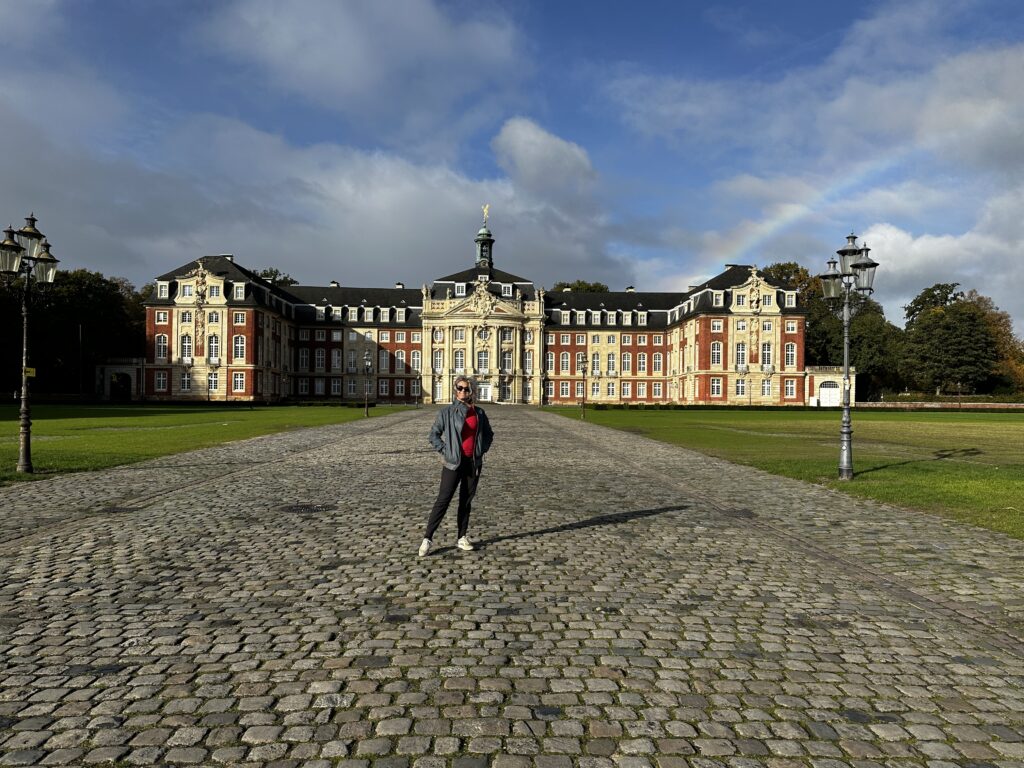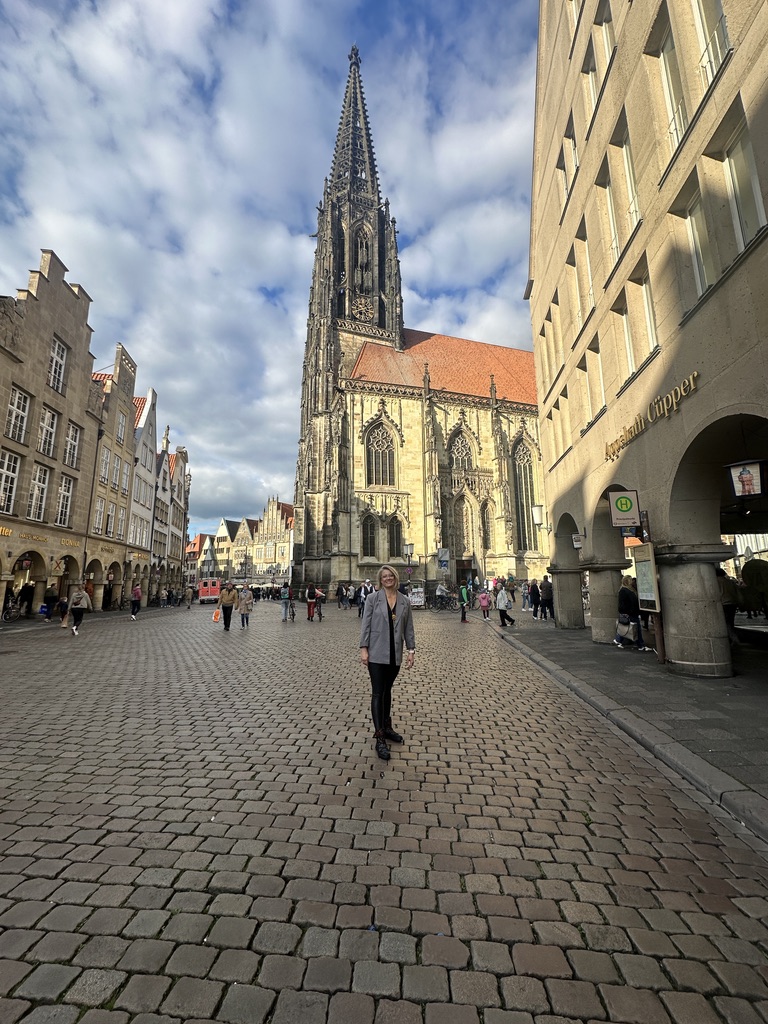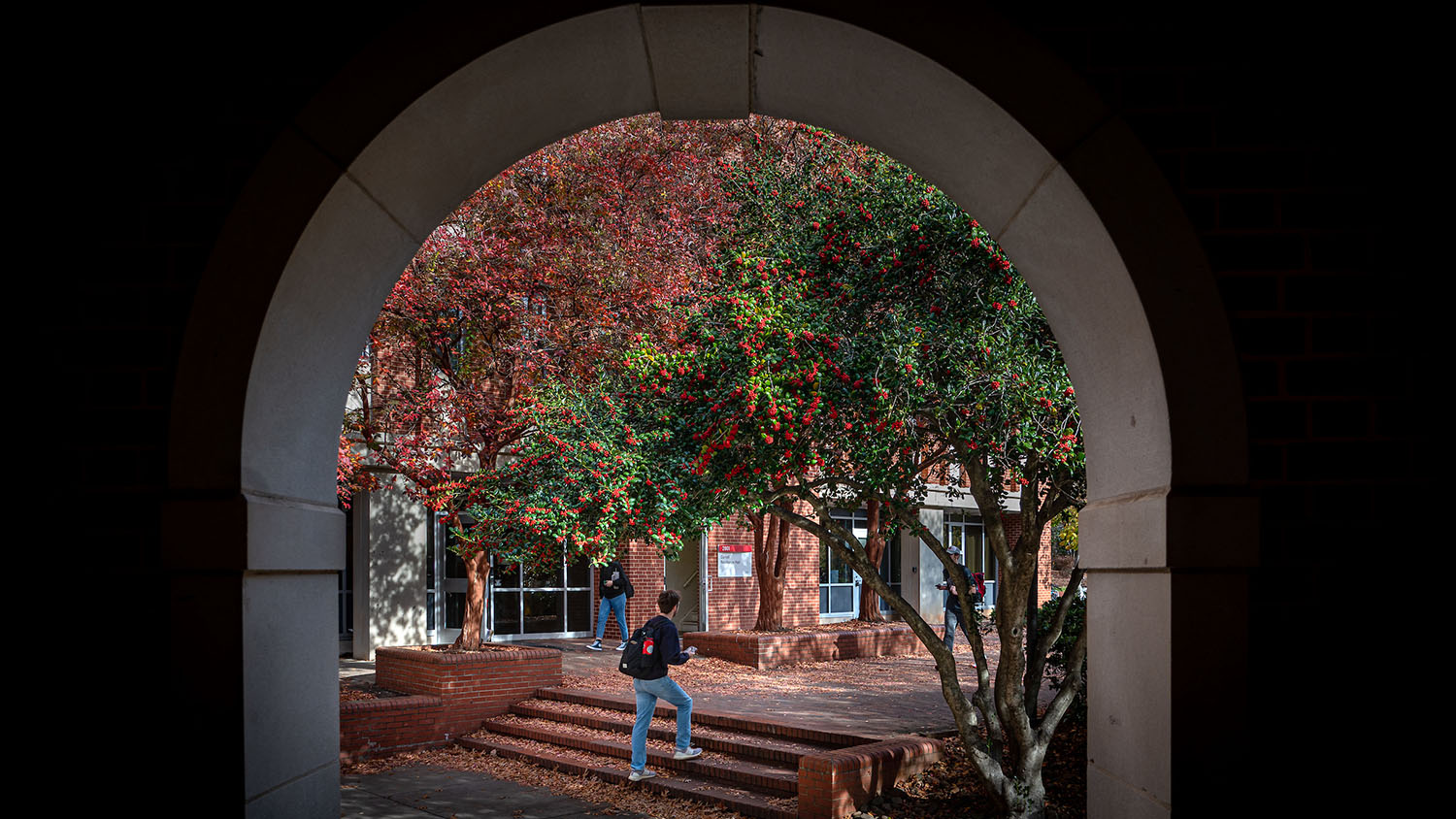WLC Faculty Member Spends Fulbright Year in Germany
Dr. Lauren Brooks is focusing on the connection between teaching and research thanks to this prestigious award

What did you study and where (degrees)
I received both my Bachelors and Master’s Degrees in German at California State Long Beach. I received my PhD in German Studies with a Dissertation titled “Kafka goes to New York: Reading Kafka in Seinfeld’s America” from Penn State, and in the same year I received my Master of Education in Curriculum and Instruction from Bloomsburg University in Pennsylvania.

What was the Fulbright application process like? What made you want to do it?
The Fulbright application is a pretty intense process that requires a lot of planning, starting about 1.5 years before you actually go. With the encouragement of my WLC colleagues and the Office of Faculty Excellence, I was fortunate to receive a Fulbright Pathfinder Grant from NCSU in the summer of 2023, which helped me establish contacts at the University of Münster. I needed to have a clear idea of my project to discuss with my German contacts, and luckily, I met with people at the Germanistisches Institute who were interested. Then came the proposal: over 10 pages of project description, a series of shorter essays, and a bibliography of sources. Depending on the type of grant, you also need institutional support from your host university. The
Obviously, receiving this award is a huge honor, but I didn’t just apply for the Fulbright grant just to receive the award, but also because, after 15 years of intensive teaching, I’ve never really had time to dive into my own research. To do the work I proposed, I knew I needed to be in Germany.
Where are you spending the year? Describe the project you’re working on.
The main purpose of my project is to develop and gather materials for a course on the Black German Diaspora, which I plan to teach in the Spring 2026 semester at NCSU. My home institution while in Germany is the University of Münster, but I will be visiting other cities and universities while I am here to connect with scholars active in this field. There exists this idea in Germany that ‘Racism is real, but it’s in the U.S., not in Germany.’ This sentiment is alive and well here as I see in the news, especially with the rise of representation of the far-right party, the AfD, which hold a strong majority in the former east. It is without question that race has long been an issue in Germany, from colonization and genocide in West Africa to a fascist regime and a divided, then united, country. But Germany does have its own special way of denial of this past. Racism exists in both the U.S. and Germany, permeating the daily lives of many citizens—often those who don’t feel truly at home in the country where they were born and raised. I want to collect materials while here to create a course that offers a vibrant representation of the importance of the work of the BIPOC community in German history, culture, and literature as we know it today. Without these voices and experiences, German society wouldn’t be what it is today.
While at the Uni Münster, I will also help organize a Black German Studies speaker series with colleagues and graduate students from the Germanistisches Institut that will take place in April 2025. We are still in the initial planning phase, but this event will involve guest scholars in the field. In the coming weeks, I’ll travel to Berlin to meet with scholars and activists working on the experiences of East Germans of color after the fall of the Wall, in hopes to be able to invite to participate in the series. This experience will uniquely position me to engage with scholars in this field and forge connections for future cultural exchanges and speaker events in both the U.S. and Germany.
What do you hope to gain from spending a year in Germany?
I believe (when possible) it’s invaluable for language educators to regularly visit the countries where the language they teach is spoken. Being immersed in the culture allows me to witness changes firsthand and pick up on evolving nuances. There’s a lot happening politically in both Germany and the U.S., and being here during an election cycle will offer an interesting perspective on Germany’s reaction to our outcomes. I’m also excited to collaborate with German professors on new projects and foster connections across institutions. My time here will also allow me to really focus on developing a course that transcends disciplinary boundaries, appealing to students from diverse academic backgrounds, while highlighting the critical link between language acquisition and cultural understanding. Spending an entire academic year in Germany is not only a pivotal step in my own academic journey, but also a chance to enrich our department and enhance the offerings in World Languages & Cultures and across CHASS.

Favorite experience so far as part of the program?
The semester just started on October 7th, but I have already had several meetings with graduate students and faculty of the department, and I am very much looking forward to working with them this year. It has been great to be on the other side of things at a German university as well, because I only ever been at a German university in the capacity as a student, and not faculty. While here I will attend lectures and seminars, participate in their “Literaturwissenschaftliches Kolloquium” (evening guest lectures by international scholars followed by a discussion and reception), organize a Black German Studies speaker series in April 2025, co-lecture some seminars, and work closely with activists in Germany and hopefully bring them to the University of Münster and eventually NC State.
Outside of the academic side of life though, there are also many fun experiences:
After traveling to Angers, France last month, I was inspired to start taking French.
Münster is the most bicycle-friendly city in Germany, a lifestyle that I have wholeheartedly embraced! There are more bicycles than people here! So, my daily life involves tons of cycling, even when it rains…which is not my favorite. But as the German proverb goes, “There is no such thing as bad weather, just bad clothing.” But let me tell you, I still get soaked, even while wearing my neon yellow biking poncho…
And just being in Germany is the best part!! It is my happy place.
Find out more about Dr. Brooks, her research and teaching.


